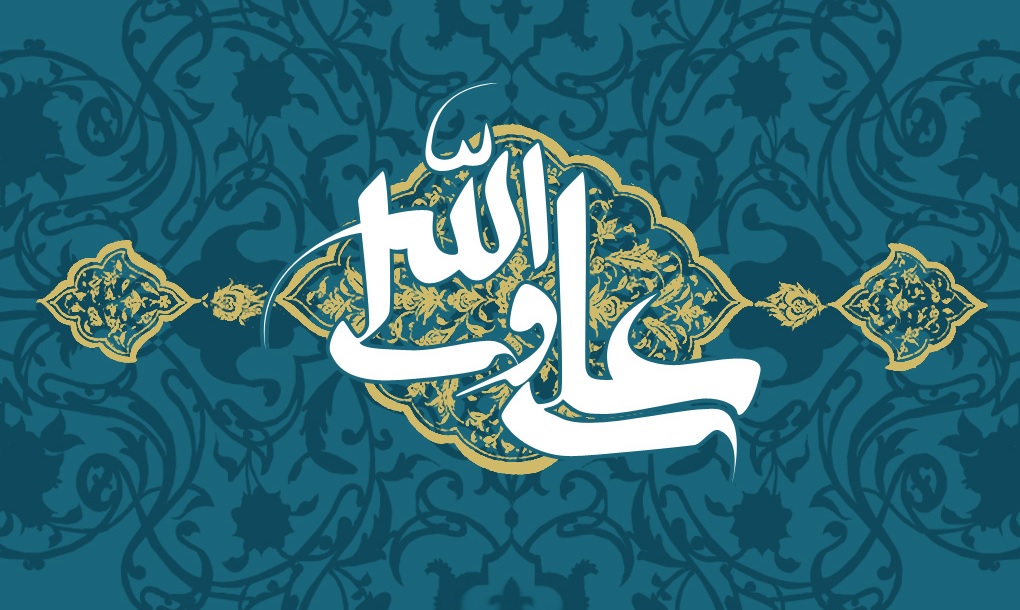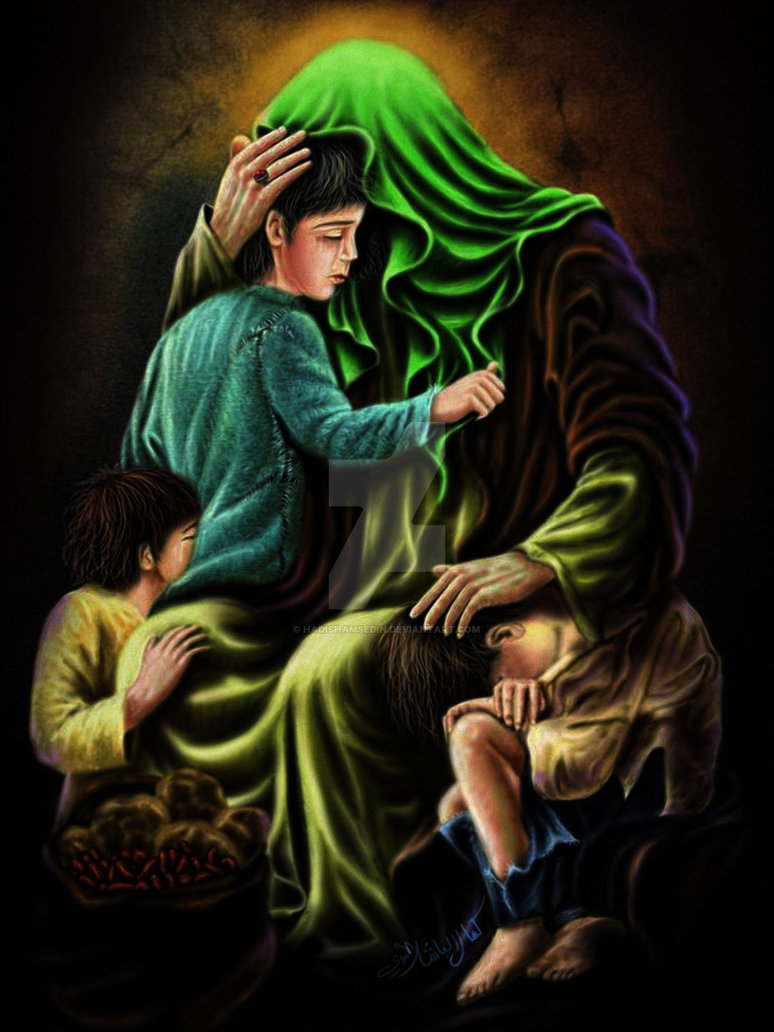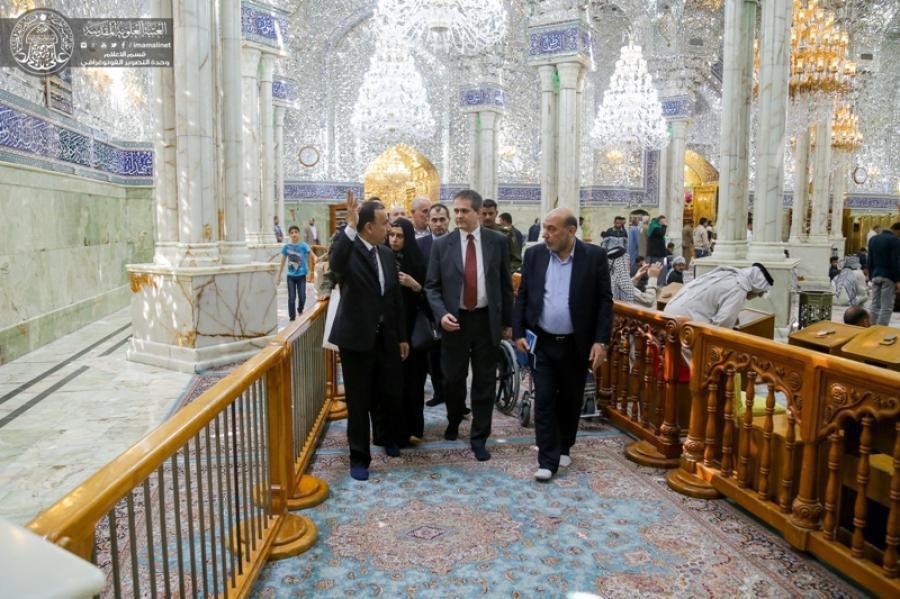According to rahyafte (the missionaries and converts website): Fatima bint Asad (SA) was born into a household of high spirituality. Her grandfather Hazrat Hashem ibn ‘Abd-Manaf was the leader of Quraysh and keeper of Kaaba. As a capable and generous man, he married a girl from his own family who gave birth to his son, Asad, i.e. father of Fatima bint Asad (SA). Among the Arab tribes, the Hashemi family in the tribe of Quraysh was well-known for its moral virtues and supreme humanistic characteristics.
Magnanimity, generosity, courage and so many other virtues were characteristics of Bani-Hashem. ‘Abdul-Muttaleb, who was a very discriminating man had assessed her nature, her intelligence and her capabilities from the very beginning and proposed her for his son, Abu Taleb (AS).
Fatima bint Asad (SA) came to the Sacred Kaaba and began to circumambulate praying as she walked, “Oh God! I believe in you and in the messengers and the scriptures You have sent. I believe in what has been said by my grandfather, Abraham (AS) who built the Ancient House (the Kaaba). So, for the sake of the builder of this House, and for the sake of the child in my womb, who talks to me and who is my helper and friend, I implore you to make my labor easy. The child I am carrying is a sign of your greatness and power.”
At the time of the birth of the Prophet Jesus (AS) his illustrious mother was forced to leave the Holy House. A voice said to her: “Oh Mary! Leave the Bayt al-Moqaddas, since it is the place of worship and not of childbirth.”
But when the time of Imam Ali’s (AS) birth approached, a voice was heard saying: “Oh Fatima bint Asad! Enter the house (Kaaba).”
Fatima bint Asad leaned against the wall of the Kaaba to rest. Miraculously, the wall opened. She entered and the wall closed behind her. ‘Abbas ibn ‘Abdul-Muttaleb, the Prophet’s uncle witnessed this miracle. He and his companions rushed to the gate of the Sacred House, which was locked, and tried in vain to open it. Understanding that the Divine was at work there, he and his companions ceased to interfere. The news of this incident soon spread throughout Mecca.
Imam ‘Ali (AS) was born within the Kaaba with his eyes closed and his body in humble prostration before the Almighty God. Fatima stayed in the Kaaba for three days and as the fourth day approached, she stepped out, carrying her baby in her arms. She found the Holy Prophet waiting to receive the newly-born child in his anxious arms. Imam Ali’s birth inside the Kaaba is unique in the history of the world.
Neither a prophet nor a saint was ever blessed with such an honor.
It is an undisputed historical fact recognized by all historians that the Holy Kaaba is the birthplace of Ali ibn Abi Taleb. Glad tidings were brought to Abu Taleb and his household. Upon their arrival at the Sacred House they saw Prophet there with the child in his arms.
Fatima bint Asad told that while she was inside the Kaaba, she kept hearing a voice say, “Name this child Ali.” The name Ali is an optimistic and cheerful name. It signifies nobility, eminence, and elevation. No one before had ever had that name, and no one before him or after him ever had the honor of being born inside the sacred walls of the Holy Kaaba. Iranian Muslims celebrate National Fathers’ Day on 13 Rajab (7th month of Hegira calendar) on the birth anniversary of Imam Ali (AS) the first Imam of Twelver Shiites.
The day was designated by the government and entered the calendar as the National Fathers’ Day out of respect for the Twelver Shiites’ first Imam. It is a day to honor the place of fathers in the family and to celebrate the position of fathers in the Islamic Republic of Iran.
Shiites believe that in Prophet’s last Hajj pilgrimage, the Prophet appointed Ali ibn Abi Taleb, his son-in-law and cousin, as his Caliph and Imam (since Shiites believe in Imamate, the leadership of Muslims bestowed on Imams indirectly by God), though it is highly debated by Sunni scholars of Islam, whether the Prophet meant merely support and love for his family or he intended a political and spiritual leader for the Umma. However, Sunnis honor and respect Ali (AS) as Muslims’ fourth Caliph, among the famous four caliphs of early Islam.
By the criterion of proximity to the Prophet, as Sunni histories had admitted, Ali (AS) was the best character for Caliphate of the Prophet. He was a forerunner in accepting Islam and it was he who saved the Prophet’s life in critical times when he slept in Prophet’s bed in Mecca, while the Prophet himself was out for Medina, and thus the Quraysh assassins found Ali and not Mohammad in the place only to sink into despair as the mission failed.
source:globe.razavi




















